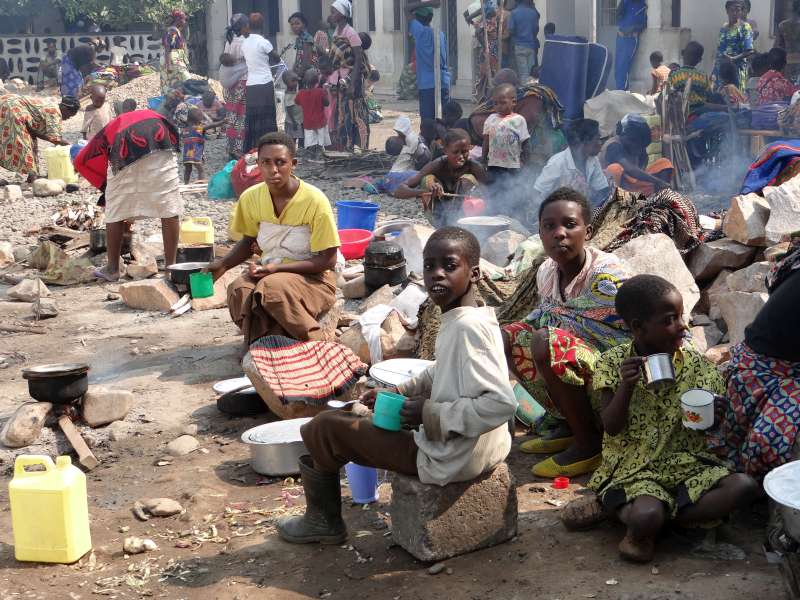
400,000 children in the DR Congo risk starving to death as aid dries up

Hunger has surged in the Democratic Republic of Congo, with 400,000 children at risk of starving to death due to conflict, displacement and funding shortages, aid agencies said.
Militia fighting that broke out in Congo’s central Kasai region last year has led to an eight-fold increase in hunger, leaving 3.2 million people short of food, the United Nations (U.N.) Office for the Coordination of Humanitarian Affairs said.
“Vicious conflict has left millions of people in Kasai severely hungry and the world cannot continue to ignore this scale of human suffering,” Jose Garcia Barahona, the British charity Oxfam’s country director, said in a statement.
“Governments and international donors need to urgently plug the funding gap,” he said, adding that Oxfam and the U.N. have already halved emergency food rations for thousands of people.
More than 3,000 people have been killed and 1.7 million forced to flee their homes in Kasai since the start of the insurrection by the Kamuina Nsapu militia, which wants the withdrawal of military forces from the area.
Fighting has prevented farmers from tilling their land for three consecutive agricultural seasons, Oxfam said.
As the security situation has stabilized in parts of the region, some people have begun to return home, the U.N. children’s agency (UNICEF) said in a statement.
“Families have little to harvest from their own land and nothing to sell at the markets,” it said, adding that conditions are not expected to improve before June.
The U.N. has appealed for $1.7 billion for Congo in 2018, its third largest appeal after Syria and Yemen, and more than double the amount it requested this year.
Donors have only provided “a fraction” of the sum required, Oxfam said, adding that its project may have to close in March.
More than 200 health centers have been destroyed, looted or damaged, UNICEF said, increasing the risk of diseases like measles spreading.
“Guaranteeing access to basic health and nutrition services to returning populations is essential to help malnourished children survive and thrive,” Tajudeen Oyewale, UNICEF’s acting representative in the Democratic Republic of the Congo, said.






